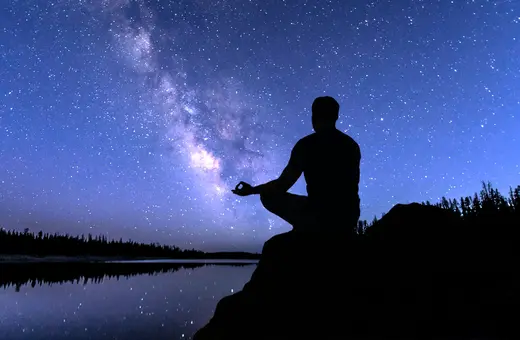Co-opted by brands and corporations, has authenticity become an empty fantasy? Where can you find the ‘real you’? How can we have authentic relationships in a world of inequality? Does authenticity mean the same thing for everyone?
We have long been obsessed with the authentic. 50 years after the Existentialists expounded the dangers of bad faith, self-help entreaties to ‘be true to yourself’ join a torrent of brands proclaiming themselves the ‘real deal’. Yet living authentically is far from simple. As Sartre said, “If you seek authenticity for authenticity’s sake you are no longer authentic.
What does it mean to ‘be oneself’? Does authenticity promise fulfilment? And in a world where #nofilter selfies are posted for likes and plain-speaking politicians trade re-tweets for votes, is being ‘real’ a sham?
In this issue of IAI News, we tackle authenticity. Our contributors examine this contested concept, investigating its role in philosophy, politics and popular culture. They ask whether our infatuation with the ‘real’ drives us towards a deeper, more meaningful existence, or whether we are in pursuit of a deceptive and dangerous illusion
Authenticity, Alienation and Privilege
Enzo Rossi, political philosopher at the University of Amsterdam
Marx wrote that capitalism inevitably and inescapably estranges workers from their true selves. But does the system alienate all workers equally? Rossi argues that privilege and political ideology play a crucial role in how we experience alienation and inauthenticity.
Kate Kirpatrick, philosopher and theologian at the University of Hertfordshire
How can two people love each other authentically in an unequal relationship? This is the question raised by Simone de Beauvoir and examined by Kirpatrick as she asks what happens to the concept of authenticity when love is involved.
Alessandro Ferrara, professor of philosophy at the University of Rome
Post-modern philosophers dismissed authenticity as an impossible and out-dated ideal. Yet we still feel distaste for corporations that hi-jack the concept for profit. Exposing this paradox, Ferrara argues that we need a new vision of authenticity for the 21st century.
Robert Shepherd, professor of International Affairs at George Washington University
Travelling the world to find yourself has become a mainstream cliché. But is leaving home the best way to discover the ‘real you’? Shepherd suggests that travel as a means to attain authenticity fundamentally misunderstands Heidegger’s philosophy.
Jeanette Bicknell, author of Philosophy of Song and Singing
We believe the best songs are heartfelt: they are windows into the inner lives of those that sing them. But can a musician be a performer and simultaneously sincere? Bicknell examines the boundary between authenticity and artifice in popular music.
Somogy Varga, professor of philosophy at the University of Memphis
With corporations and employers now jumping on the authenticity bandwagon, being the ‘real you’ should be easier than ever. But is capitalism’s celebration of authenticity exploitation in disguise? Varga investigates being ‘real’ in the modern age.
Andrew Bowie, musician and professor of philosopher at Royal Holloway
Philosophers have exposed authenticity as an inherently problematic concept yet the ideal remains ubiquitous in modern culture. How can we redefine authenticity to acknowledge its contradictory nature? Bowie suggests we look to art and aesthetics for understanding.















Join the conversation